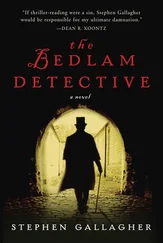Cypress trees scattered around the courtyards swayed to nature’s will. All three dozen adobe homes on the Sunni Strip were new, a gift from the powerful Tamimi tribe and supposedly subsidized by the Iraqi parliament. Sahwa checkpoints marked both sides of the Strip, and I walked to the nearer one, where a black Land Rover with tinted windows was parked. My soldiers and the jundi s found security positions, taking knees next to cars and lying down in small depressions. Batule loped behind me, a radio strapped to his back like a green bullseye. Before I reached the checkpoint, a rear door of the Land Rover opened and there was Fat Mukhtar, arms wide, hands formed into plump peace signs.
“ Habibi! Surf’s up!”
Pressed against the Iraqi’s mass in a hug, I felt his man boobs pushed against my chest plate. He pecked both cheeks, and I air-mouthed reciprocation. He wore a loud powder-blue tracksuit instead of a man-dress, and his thatch of curls was stuffed under a checkered headdress of red and white. Aviator sunglasses and white sneakers completed the outfit.
“The hell?” I whispered to Snoop, who was getting the same treatment. “We’re habibi s now?”
“He’s showing off, yo,” Snoop said, now released from the tribal leader’s embrace. “Wants people to know he’s close with an American officer.”
“ Wasta .” I winked.
“Wasta.”
Fat Mukhtar then tried to shadowbox with me, but stopped when I stood there and rubbed my helmet rather than play along. He was checking on his men, he said, as the Sunni leaders rotated responsibility for posting Sahwa on the Strip. What luck it was to bump into each other like this!
It was the first time we’d seen each other since the deaths of Alphabet and Ortiz. He expressed his condolences and assured me that his men were looking for the sniper. In a dark tone, he whispered something to Snoop, who asked him to repeat it with an air of disbelief.
“He say the sniper is a new terror man called ‘the Cleric.’ ”
“Huh? The guy from the arch?”
“Not him. That cleric has been dead many years. The mukhtar is not sure if the Cleric is a real holy man, but that’s the name he goes by.”
The topic of conversation reminded me I should move around while in the open; between the trailing radioman and lengthy discussion, I was prime sniper bait. Now pacing, I thanked the mukhtar for the information and, in broken Arabic, explained that we wanted to know about Dead Tooth. He answered so furiously I was unable to understand, turning to Snoop for help.
It was true, he told us, Dead Tooth had been hanging around the Sunni Strip. But his own family had chased him away because he refused to recognize the authority of the fasil .
“Law is everything,” Fat Mukhtar said. “And fasil is the ground of our law.”
He advised us to look for Dead Tooth in the south of Ashuriyah, where the poorer Sunnis lived. “Or among the Rejectionists,” he said. “Shi’as will hide anyone for moneys.”
“Speaking of,” Snoop said, “he asks about the next Sahwa payment.”
Two teenage Sahwa guards in khaki on the far side of the vehicle began chanting “Fuluus! Fuluus!” until Fat Mukhtar yelled at them to turn back around. It was rather terrible theater, though I appreciated the effort.
“We’ll call soon,” I said. “Only a couple weeks more.”
Fat Mukhtar tucked his neck into his chest, jowl pushing out, a sinkhole of excess skin. An odd way to express displeasure, I thought. He knew that Sahwa paydays were scheduled by the commander, at least until the Iraqi government took them over.
Something occurred to me. “You still want to be paid first, right?” I asked him. I let Snoop translate but didn’t wait for an answer. “Azhar’s family lives on the Strip? Take us there.”
We walked a quarter of a mile to a two-story house with white trim and a balcony. Fat Mukhtar banged on the courtyard door while I waved over a fireteam. The storm had weakened, though the wind still proved too much for Snoop, who was now using his plastic rifle as a cane. A Sahwa guard who’d followed us pointed to the plastic rifle and laughed. Snoop barked back in Arabic. The guard pounded his chest twice before returning to the checkpoint. Snoop mumbled to himself and spat on the ground where the guard had stood.
Chambers emerged from the cloud of orange dust with Dominguez, Hog, and Ibrahim in tow. Though I wanted nothing more than to be rid of our platoon sergeant, I’d learned that including him in decisions minimized blowback. Chambers took in the balcony and sneered. “Comes from money. Interesting.”
“Think we’ll find anything?” Ibrahim asked.
“Nope,” Chambers said. “But he’s been here. Hard for rich kids to get away from Momma’s tit.”
We all laughed, even Dominguez.
“Almost forgot.” I pointed to the jundi s, who’d huddled together under a nearby cypress tree. “Bring them, too.”
Without a word, Dominguez walked over to the Iraqi soldiers, shaking the nearest one by the collar, and gestured for them to follow him. They did, though the one whose collar had been violated spoke with ire to Dominguez’s back.
While Dominguez took the soldiers and jundi s into the house to search cabinets and upturn mattresses, Chambers, Snoop, and I met with the family and Fat Mukhtar in the courtyard. It made for a crowded space, and I kept having to push a fern out of my face to make eye contact with anyone. A man with cracked skin and a gray worm for a mustache glared at me while his wife, covered in an abaya , yelled at Snoop and wagged a finger in his face. Chambers stepped to the side to play with two girls and their Barbies, which were Arab in appearance and had various face veils as accessories. Then the woman turned her finger toward me. Even though the top of her head barely cleared my sternum, I took a step back and used the fern as a shield.
“We’re being gentle!” I told Snoop, rifle slung, hands raised. A sniper on the Strip was hypothetical. This lady was not. I took off my lenses, helmet, and gloves and tried to look as boyish as possible. “Tell her that.”
My charms had little effect. She kept yelling, and her husband kept glaring. Fat Mukhtar tried yelling back, which just angered her more.
“Azhar!” I said, trying another approach. “Azzzz-harrrr.”
That flipped a switch. She bowed her head and spoke to Snoop. I strained to understand, but quickly gave up.
“What news do you bring of their son?” he translated.
Neither of us had much to share. The husband confirmed what Fat Mukhtar had said about their disowning Dead Tooth, though that decision seemed to be a source of marital tension. I asked about the older brother, and he said he was at his Sahwa post. He asked if Azhar was to be killed. I said capturing their son alive was our goal, so if they knew anything at all, it’d be wise to tell us. They said nothing. I asked how their dead cousin’s mother was doing, remembering her wails and pleas. They said she was grieving, but Insha’Allah, she would find peace soon. The husband asked if we’d stay for chai after the search. Ibrahim appeared in the doorway, ducking under the frame. He asked me to follow him inside.
“Wait until you see this,” he said.
We walked through a living room covered in sleeping mats and blankets; during the summer, Iraqis sleep in large, airy rooms or on the roof. A ceiling fan spun creakily from above. Over a kitchen of stainless steel, a staircase rose, angling into wooden beams that held the balcony. Upstairs, there was a small bureau in the hallway. Next to it hung a religious streamer, green with a yellow rim. On the bureau was a picture frame. I picked it up. Two Iraqi boys smiled for the camera, dirt field and palm trees behind them. They both had long faces and mop-tops, their resemblance to one another uncanny, arms draped around each other’s shoulders to show they were good brothers. They wore matching jerseys, and the elder held a soccer ball. The younger stuck out his bottom row of teeth like a mule to show off a recently displaced tooth: Dead Tooth when he’d been Baby Tooth. I set down the photo and followed Ibrahim into a corner room that smelled of ammonia.
Читать дальше




![Ally Carter - [Gallagher Girls 02 ] - Cross My Heart & Hope To Spy](/books/262178/ally-carter-gallagher-girls-02-thumb.webp)
![Ally Carter - [Gallagher Girls 01] I'd Tell You I Love You But Then I'd Have to Kill You](/books/262179/ally-carter-gallagher-girls-01-i-d-tell-you-i-lo-thumb.webp)






